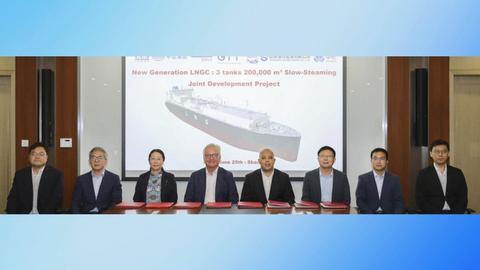Publications
FOCUS 72: Reimagining Innovation In The Maritime Industry

Dr Mark Lim, Programme Director at PIER71, shares his perspective on how digitalisation is transforming the maritime industry.
How does PIER71 advocate innovation in the maritime industry?
PIER71, which stands for Port Innovation Ecosystem Reimagined at BLOCK71, is a joint collaboration between the Maritime and Port Authority of Singapore (MPA) and NUS Enterprise, the entrepreneurial arm of the National University of Singapore (NUS). PIER71 boosts innovation in the maritime industry by attracting talents and investments into start-ups, creating opportunities to exchange knowledge and ideas, and accelerating ventures. This translates into a number of initiatives and programmes designed to accelerate digital transformation within the industry. At the core of these is an annual *Smart Port Challenge where PIER71 co-creates innovation opportunities with maritime corporates, and invites technology start-ups anywhere in the world to take participate. This process bridges demand drivers with innovative solutions, and allows entrepreneurs to gain market access by working directly with maritime corporates. At the same time, the active engagement with start-ups injects fresh ideas into, and opens up possibilities for the maritime corporates.
What are significant vulnerabilities and opportunities in digitalising the maritime ecosystem?
Beyond simply converting from a paper or analogue to a digital format, digitalisation uses technology to introduce new and improved ways of doing the same thing. The maritime industry is a very established one with complex and primarily B2B business models. While digitalisation will no doubt bring significant benefits, the biggest vulnerability would be cybersecurity.
Data in a digital format is more accessible, but also more open to data privacy breaches. As systems become increasingly reliant on the use of software, inter-connectivity and data analytics to optimise operational efficiency, they too become vulnerable to cyberattacks. In the maritime industry, data sets tend to be voluminous and complex, and getting real-time access to such data can be met with challenges in ship-to-shore communication as well as tampering along the way. When Maersk was hit by the malware NotPetya in 2017, their operations were significantly disrupted for weeks, costing them nearly US$300 million to recover their data, rebuild servers and end-user devices, and restore applications. Fortunately, cybersecurity is a well-established area particularly in the financial industry, and the emergence of new technologies such as blockchain is making data more secure and verifiable. The market potential is huge for start-ups looking at bringing their cybersecurity solutions into maritime. Just be mindful of any infrastructure and communication constraints on board vessels and at sea.
Digitalisation also brings transparency, which opens up innovation opportunities for organisations to replicate their success within the maritime space. These might include insurance, medical, certification, recruitment and training among others. Finally, it fosters more cross-industry collaboration as new skillsets will be required.
What does the future look like, from a technology point of view, for the maritime industry?
Compared to some other industries, the maritime industry is lagging behind in its digital transformation journey. This presents tremendous opportunity for it to leapfrog as we have access to more advanced technology than what was available a decade, or even a few years ago. Due to the impact it has on global trade, safety and the environment, the maritime industry is heavily regulated and we are likely to see policies driving technology adoption. The more immediate ones that are already gaining ground include automation and robotics, use of sensors, big data and analytics, connected assets, artificial intelligence and predictive technology. If we consider the pressing issues confronting the maritime industry in areas such as decarbonisation and sustainability, we are looking at the use of deep tech such as energy conversion and renewables for any significant breakthrough.

Interview with Dr Mark Lim, Programme Director at PIER71, for FOCUS #72. To read more articles from this issue, download your digital copy here


